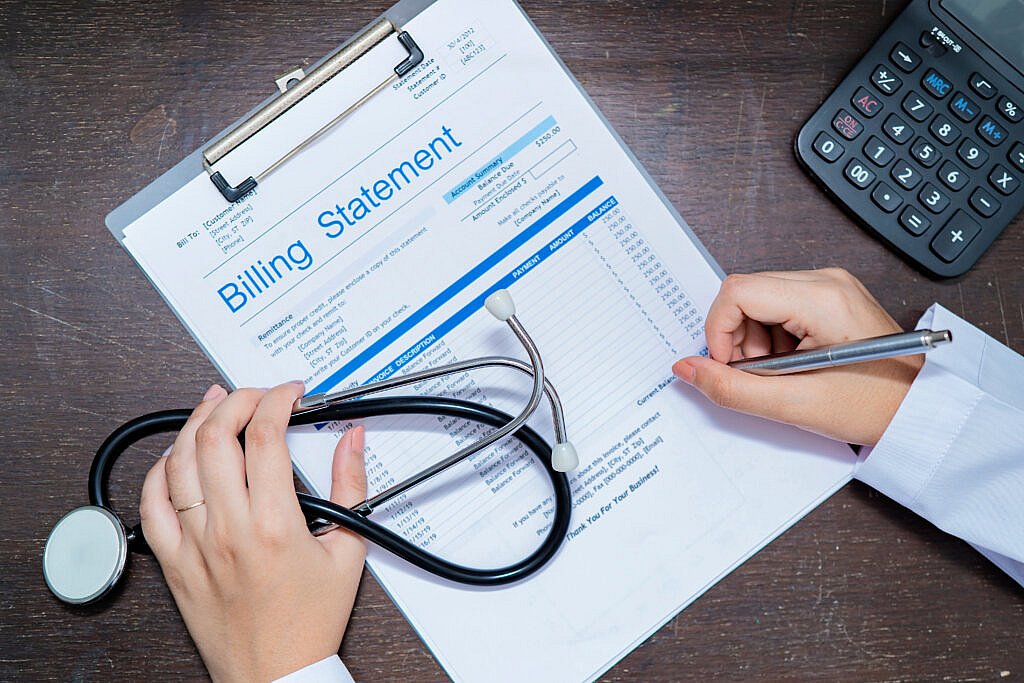
One issue that often arises for Virginia car accident victims is how insurance comes into play in their Virginia jury trial. Will it matter if most of their bills were covered by their health insurer? Or will it matter that the judgement, if awarded, will be paid by Geico and not the defendant whom the victim has sued? These are very important questions because you should expect that jurors in your case will have the same questions.
In Virginia, just mentioning insurance can cause a mistrial.
The basic rule is that Virginia courts generally prohibit the mention of any type of insurance at trial. The reason for this is that Virginia applies the “Collateral Source” Rule. Under this rule, the defendant does not get the benefit of “other sources” paying for an injury victim’s damages. Stated another way, just because the victim’s bills were paid by his own health insurance does not mean the defendant gets a discount.
What kinds of insurance are prohibited from being mentioned?
The simple answer is all types of insurance are prohibited from Virginia car accident trials. This means no mention of health insurance, car insurance worker’s compensation, disability payments, etc. Going even further, even other types of “collateral source payments,” such as paid time off that you had to use for missing work. Or even if a medical provider discharges your debt, typically the jury will be barred from hearing about this.
If I’m a Virginia car accident victim, is it “good” that insurance is prohibited from trial?
If you’ve suffered an injury from a car accident, and you are going to trial, your goal is to maximize the damages the jury awards you at trial. So, naturally, you should be considering how the prohibition of insurance will affect the outcome.
The reality is that it’s hard to tell whether insurance benefits you and will depend on the facts of your case. One “good” way this may help you is if all your bills were covered by health insurance, you are still permitted to claim the “retail” price (list price) of those bills at trial. So, if you incurred $100,000 in medical bills, but those bills were already paid off, you can still claim those bills. (Now of course you may have to reimburse your health insurer if you get money depending on the type of coverage you have.)
One scenario in which the prohibition of insurance at trial may hurt you is where you’ve had to sue a defendant who is a young person but has car insurance. The jury worry that if they enter the judgement for $300,000 (for example) against this young person, they will shackle him or her with debt for the rest of their lives, unaware that he has an auto policy that will immediately pay the judgment once entered.
But, James, won’t the jury just assume what’s happening with insurance.
This is a very valid concern. Jurors are typically smart people. Indeed, they are just seven random people selected from your local community. Most of them will at least consider in their own minds whether insurance is at play whether it’s mentioned at trial.
This can often lead to wrong results because the jurors’ speculation about how insurance works is often completely wrong. At Abrenio Law, we can tell you that we’ve polled juror members after trials just to understand their thinking, and they often mention insurance in their reasoning, but simply misunderstand how it works.
So, wouldn’t it be better to just bring insurance up at trial.
Under limited circumstances, insurance may be mentioned at trial. Indeed, there is even a jury instruction that is available should the need arise. However, it is well known that this jury instruction is rarely given, and your attorney should never intentionally mention insurance without a valid legal basis and clear discussion with the court before doing so. If they violate this rule, the judge could enter a mistrial, and you may be responsible for the defendant’s cost for a new trial.
The reality is that you must follow the law at trial, whether that law helps or hurts you. When it comes to insurance, there’s no clear answer whether it’s good for your case or bad. It’s simply something that you should be aware of as you are talking your case out with your attorney and considering whether to go to trial.
Still have questions?
Make sure to check out our Personal Injury & Criminal Defense Practice Pages where we’ve answered many other questions you likely have. Abrenio Law is a Personal Injury & Criminal Defense Law Firm representing individuals in Northern Virginia and throughout the Commonwealth. You can learn more about Abrenio Law by visiting our About Us page. You can also read about some of our Prior Results, and Read Our Reviews. Make sure to contact us at Ph. 703-570-4180 for your Free Consultation.
